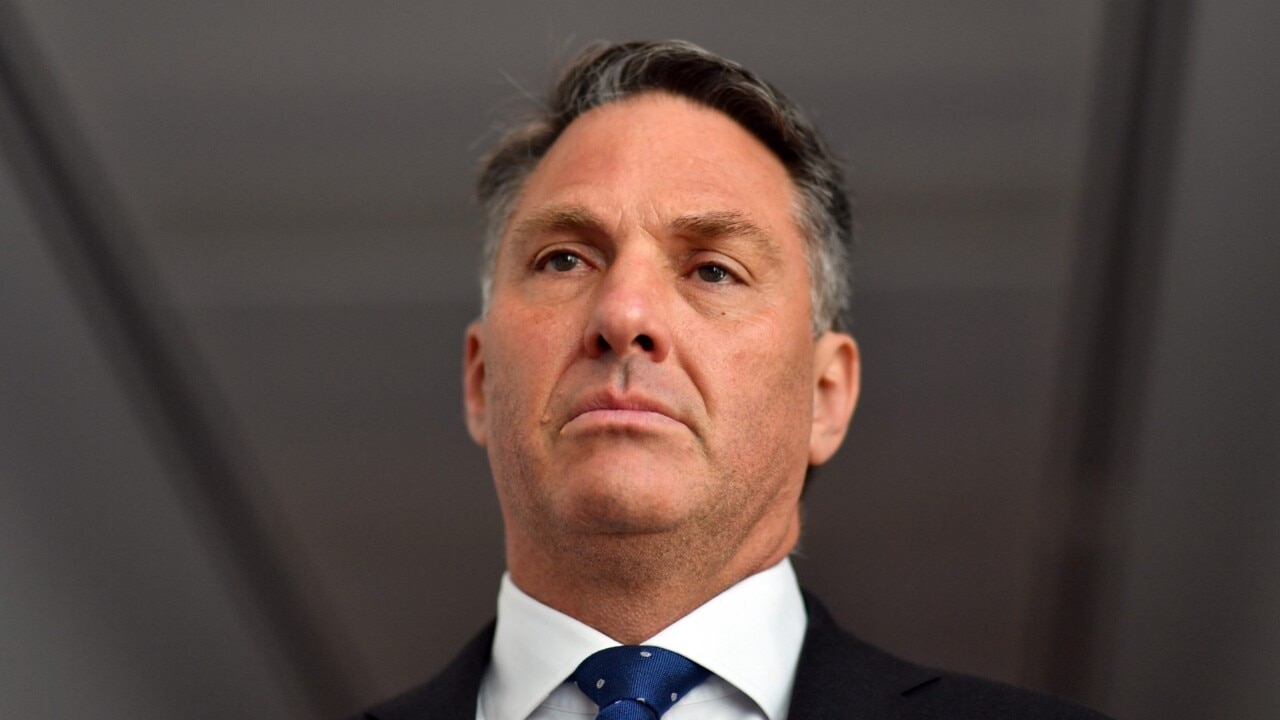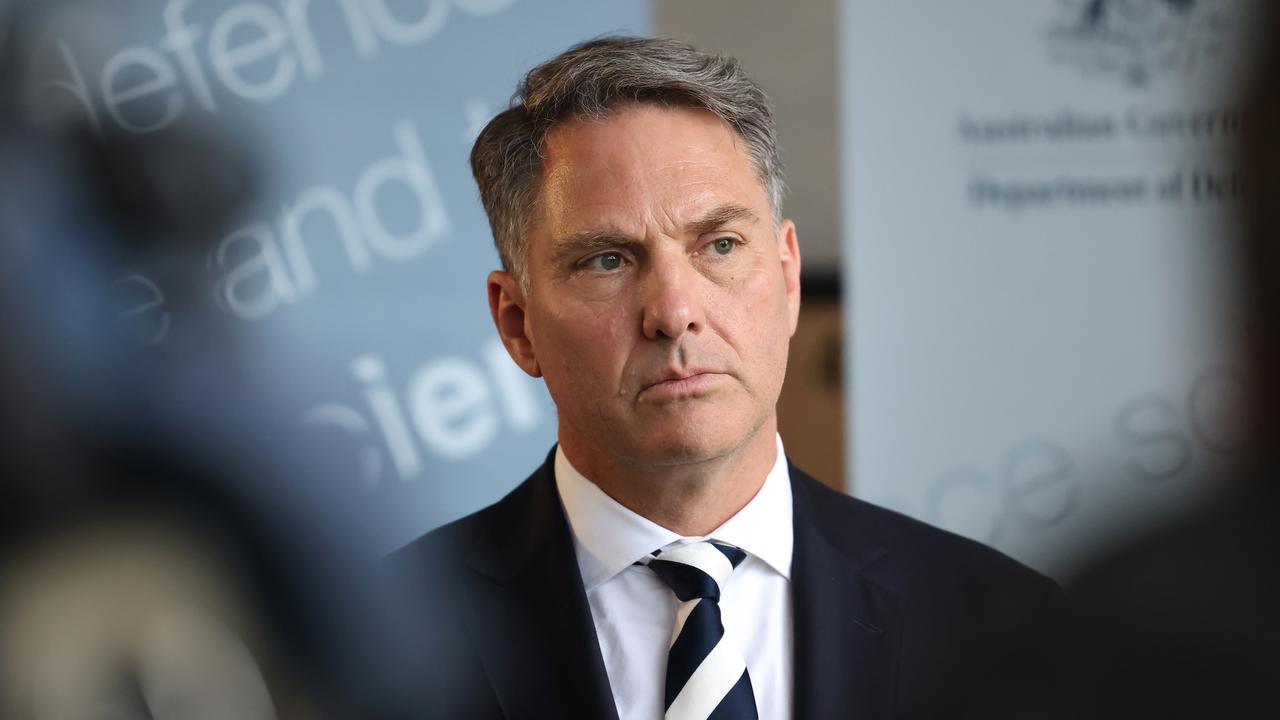Richard Marles, Australia’s Deputy Prime Minister, presents a compelling figure in contemporary Australian politics. His career trajectory, marked by significant roles within the Australian Labor Party, offers a fascinating case study in political leadership and strategic decision-making. This exploration delves into his policy positions, his approach to the office of Deputy Prime Minister, and his prominent role in shaping Australia’s foreign policy, particularly its complex relationship with China.
We will also examine public perception of Mr. Marles and his interactions with key political figures, providing a comprehensive overview of his impact on the Australian political landscape.
From his early career within the Labor Party to his current high-profile position, Marles’ journey reflects both the challenges and opportunities inherent in Australian politics. This analysis aims to provide a nuanced understanding of his contributions, his policy stances, and the broader context of his influence on national and international affairs.
Marles’ Role as Deputy Prime Minister
Richard Marles, as Deputy Prime Minister of Australia, holds a significant position within the government. His role extends beyond a purely ceremonial one; he plays a crucial part in the executive functioning of the nation.The Australian Deputy Prime Minister’s responsibilities are multifaceted. Primarily, they act as the principal deputy to the Prime Minister, assuming the Prime Minister’s duties and responsibilities in the Prime Minister’s absence.
This includes chairing cabinet meetings in the Prime Minister’s stead and representing the government on key occasions. Beyond this, the Deputy Prime Minister often holds a significant portfolio, adding another layer of responsibility to their role. The specific portfolio varies depending on the government’s composition.Marles’ approach to his responsibilities appears to be one of collaborative leadership and strategic engagement.
He works closely with the Prime Minister and other cabinet members to formulate and implement government policy. His actions suggest a focus on effective communication and consensus-building, aiming to foster a unified approach to governance. This is evidenced by his active participation in key government initiatives and his public statements which often emphasize teamwork and shared goals.
Richard Marles’s career in Australian politics has been marked by significant contributions to the nation’s security and foreign policy. For a more in-depth look at his political journey and current roles, you can visit this informative resource on richard marles. Understanding his background is crucial to grasping his current policy positions and future political impact.
Marles’ Portfolio Responsibilities
As Deputy Prime Minister, Marles also holds the portfolio of Minister for Defence. This significantly shapes his contributions to the government. His actions in this role include overseeing the Australian Defence Force, managing the national defence budget, and formulating and implementing national security policies. For example, recent initiatives under his leadership have focused on modernizing the Australian Defence Force and strengthening regional partnerships to address strategic challenges in the Indo-Pacific region.
These actions demonstrate a proactive approach to national security and a commitment to modernising the nation’s defence capabilities.
A Hypothetical Scenario: Decision-Making Under Pressure
Imagine a hypothetical scenario where a significant international incident occurs, demanding an immediate and decisive response from the Australian government. The Prime Minister is unavailable due to unforeseen circumstances. In this situation, Marles, as Deputy Prime Minister, would need to swiftly assess the situation, consult with key advisors and cabinet members, and formulate a response that aligns with Australia’s national interests and international obligations.
His decision-making process would likely involve carefully weighing the potential risks and benefits of different courses of action, prioritizing the safety and security of Australians, and considering the broader geopolitical implications. The response would likely involve a coordinated effort with international allies and partners, demonstrating Australia’s commitment to multilateralism and collective security. He would then communicate the government’s decision clearly and decisively to the Australian public and the international community, maintaining transparency and confidence in the government’s response.
This hypothetical scenario highlights the crucial role of the Deputy Prime Minister in times of crisis.
Marles’ Foreign Policy Stances

Richard Marles, as Australia’s Deputy Prime Minister and Minister for Defence, plays a significant role in shaping Australia’s foreign policy. His approach reflects a blend of pragmatism and a commitment to strengthening Australia’s alliances while navigating complex geopolitical dynamics.
Key Foreign Policy Priorities and Objectives
Marles’ foreign policy priorities center on strengthening Australia’s alliances, particularly with the United States and within the framework of the Quad (Australia, India, Japan, and the United States). He emphasizes a focus on the Indo-Pacific region, advocating for a rules-based international order and actively engaging with regional partners to address shared security concerns. A key objective is to enhance Australia’s defence capabilities and strategic posture in response to evolving regional security challenges.
This includes investing in advanced military technologies and deepening military cooperation with key allies. Furthermore, he prioritizes the promotion of economic prosperity and stability in the region, recognizing the interconnectedness of security and economic well-being.
Australia’s Relationship with China
Marles’ approach to Australia’s relationship with China is characterized by a measured pragmatism tempered by a firm commitment to Australia’s national interests. He has emphasized the importance of managing the relationship responsibly, fostering open communication channels while remaining resolute in defending Australia’s sovereignty and values. This approach acknowledges the economic interdependence between the two countries while recognizing the significant strategic challenges posed by China’s assertive foreign policy.
Richard Marles, Australia’s Deputy Prime Minister and Minister for Defence, holds a significant role in shaping the nation’s security policies. For more in-depth information on his career and current initiatives, you can visit this informative page dedicated to his work: richard marles. Understanding his background is crucial to comprehending Australia’s strategic direction under his leadership.
He advocates for a more robust engagement with China but only on Australia’s terms, emphasizing the need for mutual respect and adherence to international law. He has also stressed the importance of engaging with China on issues of shared concern, such as climate change, while remaining vigilant about China’s actions in the region.
Comparison with Previous Australian Governments
Marles’ foreign policy views share some common ground with previous Australian governments, particularly in their emphasis on strong alliances with the United States and a commitment to a rules-based international order. However, his approach differs in its explicit focus on the Indo-Pacific region as the primary theatre of strategic competition and the need for a more proactive engagement with regional partners.
Compared to some previous governments, his approach to China is more nuanced, acknowledging the complexities of the relationship while maintaining a clear articulation of Australia’s national interests. While previous governments have also stressed the importance of a strong alliance with the US, Marles’ emphasis on the Quad and other regional partnerships represents a significant shift in emphasis towards multilateralism in the Indo-Pacific.
Marles’ Positions on Key International Issues
| Issue | Stance | Rationale | Potential Impacts |
|---|---|---|---|
| Indo-Pacific Security | Strengthening alliances, enhancing defence capabilities, promoting a rules-based order. | Ensuring Australia’s security and prosperity in a dynamic and challenging region. | Improved regional stability, enhanced deterrence, increased defence spending. |
| Climate Change | Strong commitment to emissions reduction targets, international cooperation. | Addressing a critical global challenge with significant implications for Australia’s security and economy. | Reduced emissions, enhanced international cooperation, potential economic benefits from green technologies. |
| Relationship with China | Managing the relationship responsibly, open communication, defending national interests. | Balancing economic interdependence with strategic competition, maintaining a clear articulation of Australia’s values and interests. | Improved communication, reduced trade tensions, potential for increased cooperation on shared concerns. |
| Nuclear Non-Proliferation | Support for international treaties and norms, advocating for disarmament. | Preventing the spread of nuclear weapons and maintaining global security. | Enhanced global security, reduced risk of nuclear conflict, potential for international cooperation on disarmament. |
Public Perception and Media Coverage of Richard Marles
Public perception of Richard Marles, Australia’s Deputy Prime Minister and Minister for Defence, has been a dynamic and often complex issue, shaped by a range of factors including his policy positions, media coverage, and significant events both domestically and internationally. Analyzing the dominant themes in media portrayals and tracking the evolution of public opinion reveals a nuanced picture of his standing within the Australian political landscape.
Dominant Themes in Media Portrayals of Richard Marles
Media coverage of Richard Marles often revolves around his role in shaping Australia’s foreign and defence policies. Themes frequently highlighted include his approach to the relationship with China, his stance on AUKUS, and his management of the Defence portfolio. Positive portrayals often emphasize his experience, his considered approach to complex issues, and his efforts to foster strong alliances.
Conversely, critical coverage may focus on perceived weaknesses in policy implementation or disagreements within the government on strategic directions. The tone and emphasis vary significantly depending on the news outlet and its political leanings.
Evolution of Public Perception of Richard Marles
Marles’ public profile has grown considerably since his appointment as Deputy Prime Minister. Initially, his image was perhaps less defined in the public consciousness compared to other senior figures within the Labor Party. His tenure as Defence Minister, however, has placed him at the forefront of significant national security debates, leading to increased media attention and consequently, a more solidified public perception.
While early coverage may have focused on his political career trajectory, more recent portrayals have increasingly centered on his policy decisions and their impact. This increased visibility has both enhanced his profile and exposed him to greater scrutiny.
Impact of Specific Events on Public Opinion
Specific events have demonstrably influenced public opinion of Richard Marles. For instance, the AUKUS agreement, while broadly supported, also generated controversy, with some segments of the population expressing concerns about its implications for regional stability. Marles’ handling of these concerns, his public statements, and the government’s overall communication strategy have directly impacted his public image. Similarly, his engagement with international counterparts, particularly during periods of heightened geopolitical tension, has shaped perceptions of his competence and effectiveness as a foreign policy leader.
Conversely, any policy setbacks or criticisms levied against his department can negatively affect his public standing.
Examples of Positive and Negative Media Coverage, Richard marles
Positive coverage often highlights his expertise and measured approach. For example, an article in
The Australian Financial Review* might praise his “considered approach to navigating the complexities of the Indo-Pacific region,” emphasizing his diplomatic skills.
“Marles’ measured approach to the China relationship, balancing the need for engagement with a firm stance on national interests, has been widely praised by foreign policy experts.”
Conversely, negative coverage might criticize a perceived lack of transparency or decisiveness on a particular policy matter. A commentary piece in
The Guardian* might argue that his “lack of concrete action on [specific policy issue]” demonstrates a weakness in leadership.
“The government’s response to [specific policy issue] has been slow and lacks the decisive action needed to address the problem effectively, raising concerns about Marles’ leadership capabilities.”
In conclusion, Richard Marles’ career showcases a significant contribution to Australian politics. His tenure as Deputy Prime Minister, coupled with his strong foreign policy positions and considerable media attention, solidify his role as a key figure in shaping Australia’s future. Understanding his political journey, his relationships with other leaders, and his evolving public image provides crucial insight into the dynamics of Australian politics and its global impact.
Further research into specific policy areas and ongoing political developments will continue to enrich our comprehension of his legacy.
Clarifying Questions
What is Richard Marles’ educational background?
Details on his educational background would need to be sourced from biographical information.
What are some criticisms leveled against Richard Marles?
Specific criticisms would require examination of media coverage and political commentary.
What is Richard Marles’ stance on climate change?
His position on climate change can be found through reviewing his speeches and official statements.
What is his family life like?
Information regarding his personal life is generally not publicly available.


